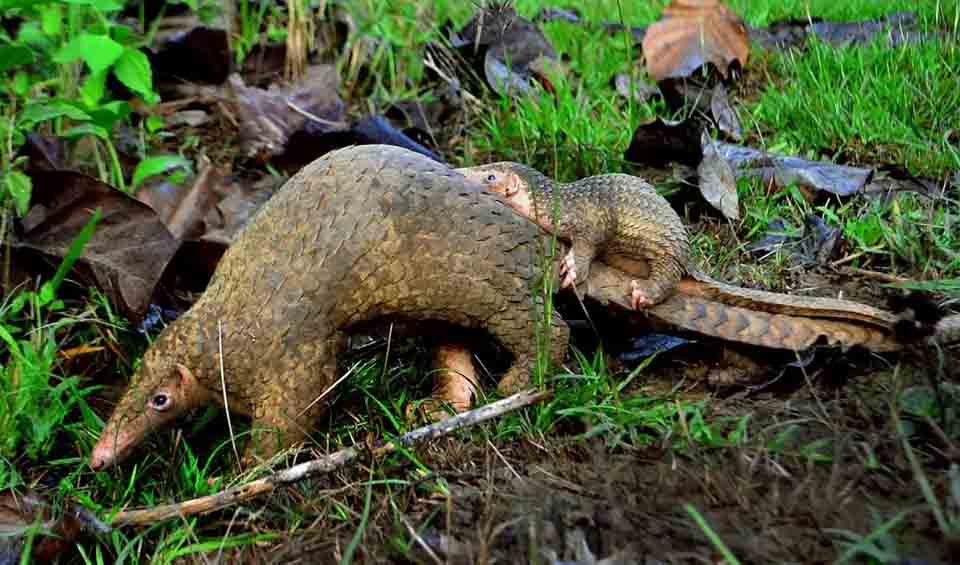Manis – Pangolins
The most trafficked mammals in the world
Pangolins, often enveloped in a cloak of mystery and intrigue, are small to medium-sized mammals distinguished by their unique armor of overlapping, keratinized scales. This protective layer, comprised of the same material as human nails, offers them a distinct evolutionary advantage, allowing them to curl up into an impregnable ball when threatened—a behavior that has earned them the name “pangolin,” which means “one who rolls up.” This remarkable defense mechanism leaves predators with a hard, unyielding surface, effectively deterring attacks.
These solitary, primarily nocturnal creatures have evolved to thrive under darkness, foraging for their primary food sources: ants and termites. Their long, sticky tongues, which can extend far beyond the length of their body, are perfectly adapted for delving into nests and lapping up insects in large quantities. This dietary habit aligns them closely with anteaters, earning them the nickname “scaly anteaters.” However, unlike their name suggests, pangolins are not related to anteaters but share convergent evolutionary traits that have adapted them to similar ecological niches.
Regrettably, the very features that make pangolins fascinating also place them in grave danger. They are sought after for their meat, as they are considered a delicacy in parts of Asia and Africa, and for their scales, used in traditional Chinese medicine despite a lack of scientific evidence supporting their medicinal value. This rampant illegal wildlife trade has pushed all eight species of pangolins toward the brink of extinction. Currently, three species are classified as “Critically Endangered” by the International Union for Conservation of Nature (IUCN), with the remaining species also under significant threat.
The international trade of pangolins and their parts is strictly prohibited under the Convention on International Trade in Endangered Species of Wild Fauna and Flora (CITES). Yet, despite these regulations, illegal trafficking persists, driven by high demand and lucrative black market prices. Conservation efforts are increasingly critical to ensure the survival of these unique creatures.
Species in this genus
Chinese pangolin
Sometimes called a “scaly anteater,” though it is not related to anteaters at all
Sunda pangolin
This one-of-a-kind mammal is facing a major threat – illegal hunting
Giant pangolin
Covered in tough, overlapping scales made of keratin — the same material human fingernails are made from
Indian pangolin
Its scales are mistakenly believed to have medicinal properties, leading to a dangerous black market trade
Ground pangolin
Often referred to as “scaly anteaters” due to their diet and appearance





